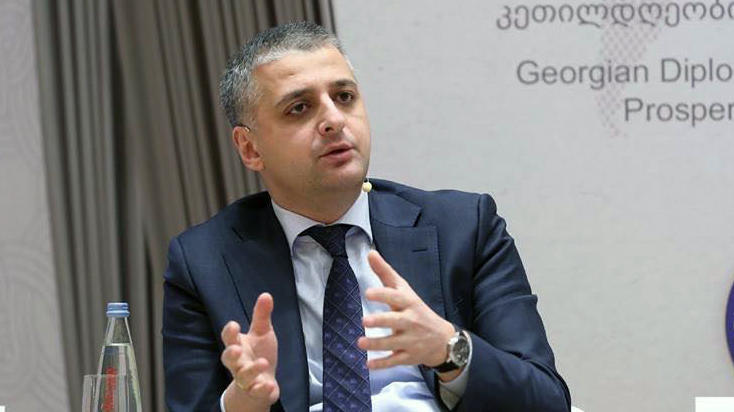Tao Zhang: A narrow production base, high unemployment and skill mismatches are the prevailing challenges
Deputy Managing Director of International Monetary Fund Tao Zhang is holding his first official visit to Georgia. Here is an exclusive interview with him.
Mr Tao Zhang, welcome to Georgia. We believe that this is your first visit to our country. Let me start with a question on Georgia’s growth forecast. According to IMF’s Regional Economic Outlook April update, the Fund decreased Georgia’s economic growth to 3.5% from 5.2% predicted in November last year. What was the reason of such a sharp decline of forecast?
Thank you. This is indeed my first visit to Georgia, and I am happy to be here. As you mentioned, we did lower our 2017 growth projection compared to last November. But keep in mind, Georgia’s growth in 2017 is still expected to outperform the region. Our revision mainly reflected the smaller budget passed in December, rather than what we assumed in the November projection. There is also good news on the horizon. Georgia’s medium-term growth is expected to accelerate to 5.5 percent with the implementation of the authorities’ Four Point Reform Plan, supported by the IMF program. We see this plan addressing infrastructure needs and enhancing the quality of education,as well as promoting economic persification, whichshould help create jobs andincrease economic activity.
The REO also highlighted the problem of high dollarization in a number of regional countries, as well as Georgia. To address the issue of dollarization, the Georgian authorities implemented a de-dollarization strategy aiming to decrease the dependence of Georgian economy on exchange rate risk. In your opinion, is de-dollarization is a solution for strong currency and for sustainable development of Georgian economy?
It is important to notethat de-dollarization is a long process. Yet given the risks to the Georgian economy, we welcome the authorities’strategy, as it increases the resilience of the economy to exchange rate fluctuations. These measures have been introduced successfully in other countries, when accompanied with policies that support economic stability.
According tothe IMF’s Financial survey (2015), there is high number of borrowers in Georgia – 680 per 1 000 adults. What are the IMF’s recommendations to decrease this number?
For borrowing to be beneficial for inpiduals and businesses, it must be done in a sustainable way. It is not the number of borrowers that we are concerned about - what matters is whether these borrowers can repay the loans. This in turn depends on how productively the borrowers use the loans and how prudent banks are in extending credit. The fact that Georgia’s banking system has been strong despite external shocks and large exchange rate changes suggests that borrowing in Georgia has remained within safe levels.
Looking forward, to further enhance financial stability, we recommend that the central bank introduce limits on loan-to-value and debt-service capacity ratios, with a preferential treatment for local currency to provide incentives to reduce exchange rate risks in households.
From your point of view what are the key challenges facing the Georgian economy currently and what steps should Georgia take to tackle these challenges? What are your recommendations to government and National Bank of Georgia?
First off, allow me to give credit where credit is due. Georgia is among the most reformed economies in the region. Now, having said that, the external shock that hit the economy at the end of 2014 did reveal some structural weaknesses that are weighing negatively on economic growth. A narrow production base, high unemployment, and skill mismatches are the prevailing challenges. So, what is needed are policies that facilitate job creation and economic persification. This will bolster financial stability and promote higher and more inclusive growth. It is also crucial for reducing external borrowing, increasing resilience to shocks, and promoting private sector development.
Mari Javakhishvili
